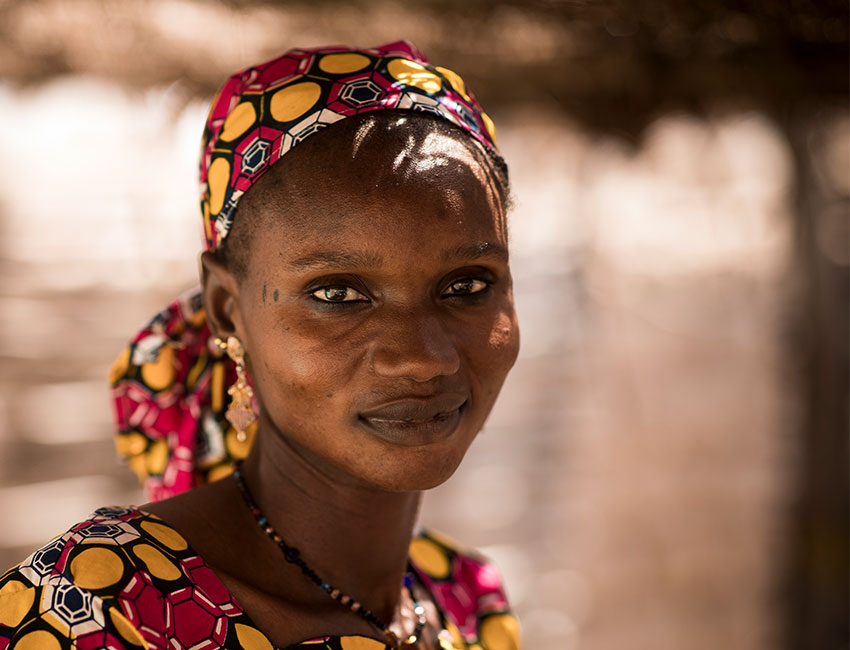Hawa is a community health worker in Mali. She is one of the many amazing women fighting against hunger on the front line. At Action Against Hunger, we train community health workers like Hawa, who can go on to help an entire generation to grow up strong.
Hawa’s story
A few years ago, a baby named Musa fell very ill. No one in his village of Kourougue in Mali recognised his symptoms. His mother, Many, didn’t know how to help him. Without treatment, Musa got worse, until his parents had no choice but to take him to a health centre – a two-hour journey on foot.
Musa was diagnosed with an advanced case of life-threatening hunger and was referred to an Action Against Hunger in-patient facility. Many stayed with her son while he was treated at the hospital for more than two weeks. In that time, Many was away from her home and wasn’t able to work or care for the rest of her family.
Thankfully, Musa is now much better, and is a healthy young child. Musa’s younger sister Fatumata almost fell prey to a similar fate. However this time, thanks to Hawa, an Action Against Hunger trained community health worker, Fatumata’s symptoms were caught early.
“Before Hawa, we were living in darkness. Since she has come here, children are healthier and mothers are happier.”
Hawa was walking through the village and spotted Fatumata. Thanks to her training she quickly identified the signs of malnutrition and asked Many to bring her daughter to the clinic she operated right in their village. Hawa diagnosed Fatumata with a life-threatening illness caused by hunger – severe acute malnutrition – and prescribed a three-week course of treatment. With Hawa’s guidance, Many gave her daughter special therapeutic food, at home, until she made a full recovery.

Recognising malnutrition
In Mali, and in many other countries where we work, rates of life-threatening hunger are high. Malnutrition is a medical condition, which is treatable and preventable. However, often parents like Many are unable to recognise the symptoms, resulting in their children becoming dangerously ill.
To bridge this gap between communities and the health system, we rely on community health workers, most of whom are women. We’re teaming up with local governments and partners to make sure that community health workers have the skills and tools they need to both diagnose and treat malnutrition cases in the villages where they live and work. Community health workers help to spot cases early and save parents the long walk to the nearest clinic.
“On my first day here, I saved a child’s life.”
Educating families about malnutrition

Community health workers also break the cycle of malnutrition by teaching families how to prevent malnutrition in the first place.
“Since Hawa has been in the village, I’ve noticed a change,” says Mamissa, whose son Simbo recently recovered from life-threatening hunger. “There were a lot of sick children before, but now there are few,” she continues.
As Hawa transforms health care in Kourougue, there are thousands more women like her in the countries where we work. Together, by going from mother to mother, home to home, they are reaching more children with care and treatment and saving more lives than ever.
“Mothers thank me,” explains Hawa. “This treatment heals their children.”
We’re grateful for our partnership with The Innocent Foundation for making our work in Mali possible. The foundation contributed £900,000 from 2013 -2016 to a unique research study, used to press for global change, helping to reduce the number of children globally suffering from malnutrition. This was built on in 2018 by funding from the People’s Postcode Lottery.


